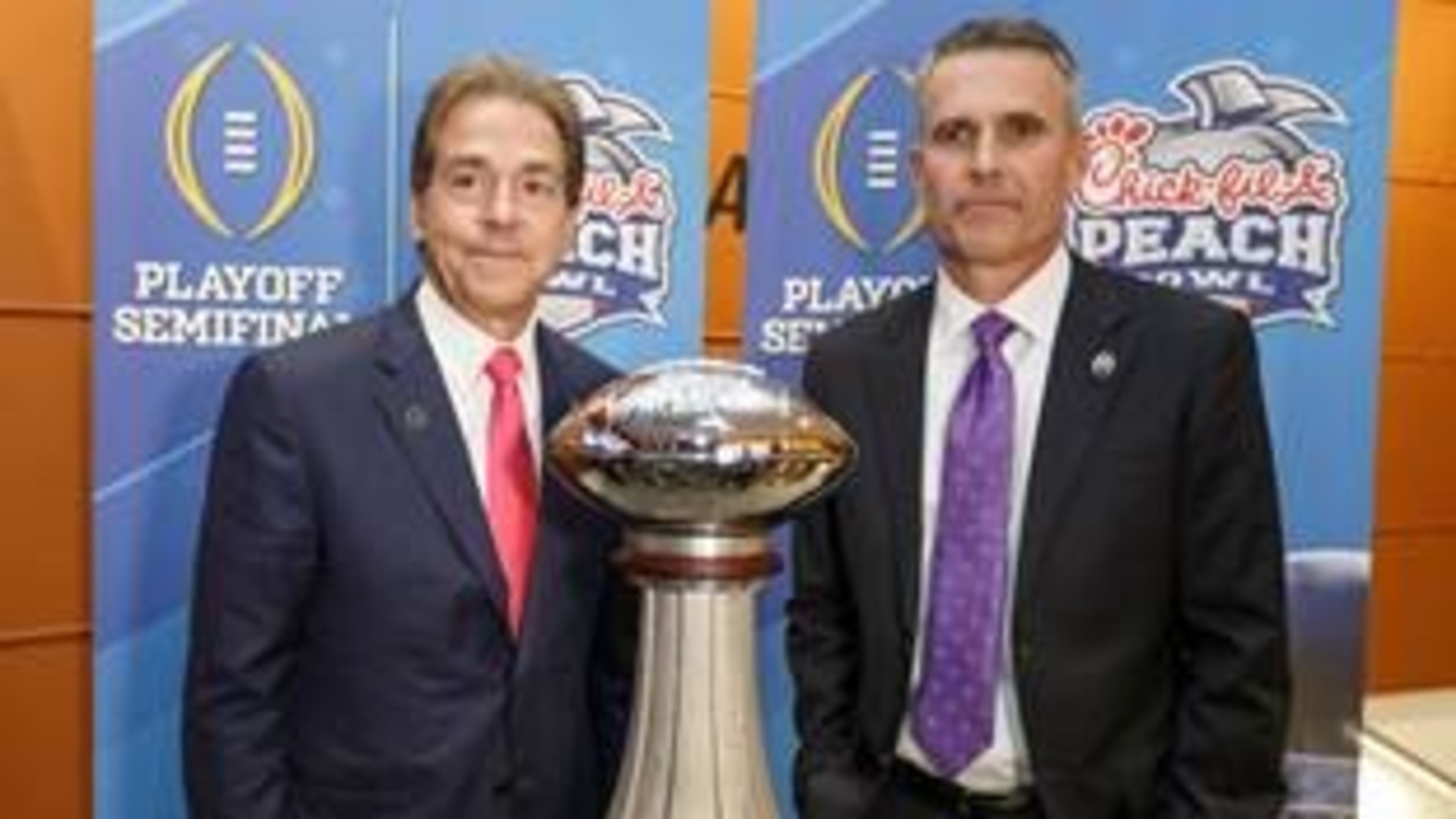Bigger stage and higher stakes for Peach Bowl this time

The high stakes of Saturday’s Chick-fil-A Peach Bowl — the winner plays for the national championship — will mean some adjustments in the bowl’s schedule leading up to the game.
Typically, the Atlanta bowl plans five days of activities for the participating teams, up to the day before the game. But this week, such activities will be limited to three days, Monday through Wednesday, to leave No. 1 Alabama and No. 4 Washington free to focus later in the week on practices, meetings and other obligations.
“We still want the players to have a great bowl-week experience, as the coaches and athletic directors also want,” Peach Bowl president and CEO Gary Stokan said. “But we’ll curtail any player activities after Wednesday because it’s a semifinal game.”
For players, bowls typically are a combination of business trip and reward. It’s a tougher balance to strike on the big stage of the College Football Playoff semifinals, which this season are in the Peach and Fiesta bowls.
“I personally think all the people who work to put this playoff on have done a phenomenal job of hosting the teams,” said Alabama coach Nick Saban, whose team is in a playoff semifinal for the third consecutive year. “Last year in (the Cotton Bowl) and the year before in the Sugar Bowl, those people did a phenomenal job of having respect for being at a bowl game but also respecting that these guys are playing a playoff game.
“It was a little different approach, and I think it was a good approach. And we appreciated it.”
Peach Bowl officials’ approach this week is to condense activities for the players into three days while preserving the activities that have made the bowl distinctive.
“I think it’s going to be an awesome week, besides the football,” Washington coach Chris Petersen said.
Activities will include five competitions between the teams away from football on Monday through Wednesday nights — cart racing, bowling, basketball, Chick-fil-A milkshake making and a “Family Feud”-style game. The opposing teams will be together for the latter two events and separate for the first three. Scores will be tallied and compared, and the team that wins three of the five events will claim the “Battle for Bowl Week” belt, a 30-pound wrestling-style championship belt.
“After players have had practice and films and meetings and everything, we’re going to give them a little levity with these events,” Stokan said. “We don’t have banquets.”
In each of the past six years, Peach Bowl officials point out, the team that won the “Battle for Bowl Week” belt also won the football game. Hearing that, Petersen joked he needs to change the Huskies’ practice schedule to include the belt events.
Among other activities planned is one that Stokan calls “the best thing in the bowl business” — a combined visit by the two teams Tuesday night to Atlanta’s historic Ebenezer Baptist Church, where they are scheduled to hear from civil-rights icons U.S. Rep. John Lewis and the Rev. C.T. Vivian.
On Wednesday, the teams will visit patients at Scottish Rite and Egleston children’s hospitals and will tour the College Football Hall of Fame. That will end the Peach Bowl’s lineup of activities for the players.
After that, it’s all-football for them, except perhaps for any distracting questions that surface during the hour each team will spend on the field of the Georgia Dome on Thursday morning for the College Football Playoff’s Super Bowl-style media day. About 500 media members are expected.
Both teams expect to have large contingents of fans in Atlanta by week’s end, although Alabama’s obviously will be larger, given the difference in travel distance.
“Atlanta is a great city. It’s also, geographically, a little ways away for our fans,” Washington athletic director Jennifer Cohen said. “And they’ve really stepped up, but Husky fans have stepped up all season long for us.”
Each school received an allotment of 12,500 tickets to sell and another 500 for its band.
“Alabama came back to us on the first day and needed another 5,000 tickets to sell,” Stokan said. “They probably needed a lot more than that, but that was their request. And we just didn’t have any tickets. Nice situation for us to be in.”
Approximately 38,000 tickets were sold locally by the bowl before the start of the season, including 29,000 through annual renewals. Another 7,300 tickets went to the playoff organization, the conferences of the participating teams, ESPN, sponsors and hospitality package provider PrimeSport.
While the game carries higher stakes than a typical bowl for the teams, it also has elevated importance for the Peach Bowl organization.
“This will be the most significant college football game ever played in Atlanta — until next year when we host the national championship game in Atlanta,” Stokan said. “Everything we have done as a bowl over our 49-year history is to get ready for this game.”



